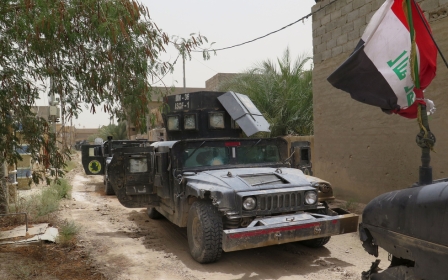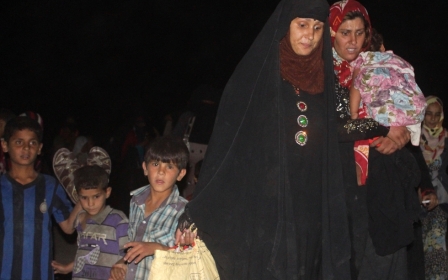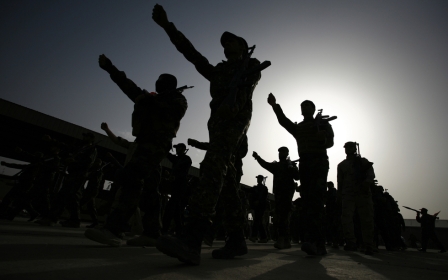After retaking Fallujah city centre, Iraqi forces push ahead in Mosul

Iraqi forces continued to pursue Islamic State (IS) militants in Fallujah on Saturday after retaking the city centre and launched a new phase of their offensive on Mosul , the militant group's last remaining major hub in the country.
While not fully under government control yet, Fallujah is the latest in a string of battlefield losses for IS, which has seen its two-year-old "caliphate" shrink significantly in recent months.
On Friday, Prime Minister Haider al-Abadi declared that Iraqi forces had retaken the city about 50km from Baghdad after the national flag was raised over the main government compound, but IS militants still hold most northern neighbourhoods, AFP reported.
Elite Iraqi forces "are continuing their progress in the liberation of neighbourhoods in northern Fallujah," Lieutenant General Abdulwahab al-Saadi, the overall commander of the operation, said.
Forces led by the police of Anbar province, where Fallujah is located, were meanwhile combing reconquered southern neighbourhoods for pockets of IS militants and explosive devices, he said.
Saadi and other commanders said Iraqi forces faced only limited resistance during the major advance that saw them push into the heart of Fallujah and clinch a breakthrough in the four-week-old operation.
Security sources said IS militants have been slipping out of the city by blending in with civilians fleeing the fighting.
Survivors told Middle East Eye's Suadad al-Salhy last week that they had paid a member of IS $100 per person to help them escape and were led through the city's sewer system.
IS's retreat in Fallujah sparked what the Norwegian Refugee Council described as "an unprecedented tidal wave of mass displacement from Fallujah". It said late on Friday that up to 20,000 people fled the city in just a few hours.
Footage on social media showed hundreds of people swimming across the Euphrates to reach safety.
"It is unknown how many families are still trapped inside Fallujah but we are concerned they are the most vulnerable - pregnant women, elderly people, people with disabilities," the NRC said.
Aid groups have been warning for days they would be overwhelmed by the flow of displaced and were running low on funding and supplies to respond to the humanitarian crisis.
Mosul next
Building on the momentum of the Fallujah operation, Iraq announced on Saturday that joint Kurdish-federal forces were starting a new phase in the push on Mosul from the south.
"We started at 5:00 am (0200 GMT) the second phase of the liberation of Nineveh," Defence Minister Khaled al-Obeidi told AFP.
"The target of the operation is to take Qayyarah and make it a launchpad for Mosul," Obeidi said.
Qayyarah, which has an airfield, lies across the River Tigris from the main base for pro-government forces in the Kurdish-controlled area of Makhmur. It is around 60 km south of Mosul.
Abadi ignored US advice to focus on Mosul last month when he declared the launch of the Fallujah operation but he vowed on Friday that the liberation of the northern city was "very near".
The embattled premier has promised that IS would be defeated nationwide by the end of 2016, but an ongoing offensive in Nineveh province, of which Mosul is the capital, has achieved only modest gains so far.
Patrick Martin, Iraq analyst with the Institute for the Study of War, argued that IS could survive the loss of Fallujah.
"The ISIS (IS) messaging machine will likely find ways to continue attracting recruits and encouraging lone wolf attacks despite the loss of Fallujah," he said.
The militant group, which has recorded few military successes on home turf lately and grabbed more headlines for claiming attacks in the West, now faces major offensives on Raqqa, its stronghold in Syria, and on Mosul.
"Mosul and Raqqa could be very different battles since when they fall the delusions of holding a caliphate completely fall away," said Patrick Skinner, an analyst with the Soufan Group.
New MEE newsletter: Jerusalem Dispatch
Sign up to get the latest insights and analysis on Israel-Palestine, alongside Turkey Unpacked and other MEE newsletters
Middle East Eye delivers independent and unrivalled coverage and analysis of the Middle East, North Africa and beyond. To learn more about republishing this content and the associated fees, please fill out this form. More about MEE can be found here.




